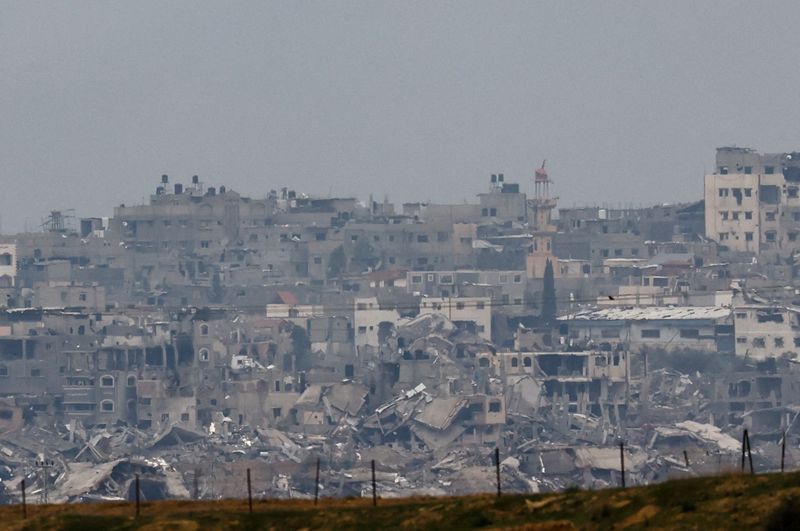Investing.com - Israel and the US are preparing for a possible Iranian attack on Israel amid intensified efforts to secure a ceasefire in Gaza ahead of the expected resumption of formal negotiations this week.
Mediators have urged Israel and Hamas to return to the negotiating table in a renewed push to strike a ceasefire deal. The talks were jeopardized by the recent assassinations of Hezbollah and Hamas leaders, which Iran and its Lebanese proxy have vowed to avenge.
Negotiations are set to resume on Thursday in either Cairo, Egypt or Doha, Qatar. Last week, the US, Egypt, and Qatar—key mediators in talks between Israel and Hamas—said they would present a "final bridging proposal" and urged both sides to attend.
A potential Iranian attack on Israel could disrupt the ceasefire talks, which US officials have said were at an advanced stage prior to the assassination of Hamas' political leader Ismail Haniyeh in Tehran. Iran has blamed Israel for the assassination, although Israel hasn't confirmed or denied responsibility.
In a joint statement on Sunday evening, France, Germany, and the UK endorsed calls for a deal, emphasizing that "there can be no further delay" given the simmering threat of regional conflict.
The White House indicated on Monday that it shares Israel's concerns about a likely Iranian attack in the coming days, pointing to an increased American military presence in the region as preparation for possible Iranian retaliation.
"It's difficult to ascertain, at this particular time, if there is an attack by Iran and its proxies, what that would look like," said National Security Council spokesman John Kirby.
State Department deputy spokesperson Vedant Patel added in a separate briefing, "We fully expect these talks to continue to move forward." He did not identify the primary obstacle to achieving a deal but emphasized that it is up to Hamas to agree to a ceasefire.
Israel confirmed it will send a delegation to the Thursday talks, but Hamas has yet to confirm its attendance, even though it has signaled interest in reaching a deal.
Following Haniyeh's assassination, Iran's Supreme Leader Ayatollah Ali Khamenei vowed that Haniyeh's death would "not pass in vain," and Iran's Islamic Revolutionary Guard Corps warned of "blood vengeance" for the killing.
Iranian President Masoud Pezeshkian reiterated these threats on Monday, telling a Vatican official that the assassination justifies Iran's right to "self-defense" and to "respond to an aggressor," according to the Iranian state news agency IRNA.
There have been indications that Iran might reconsider plans to attack Israel if a ceasefire deal is reached. However, Iran’s mission to the United Nations stated on Saturday that Tehran's retaliation for Haniyeh's assassination is "totally unrelated to the Gaza ceasefire," asserting its right to self-defense.
